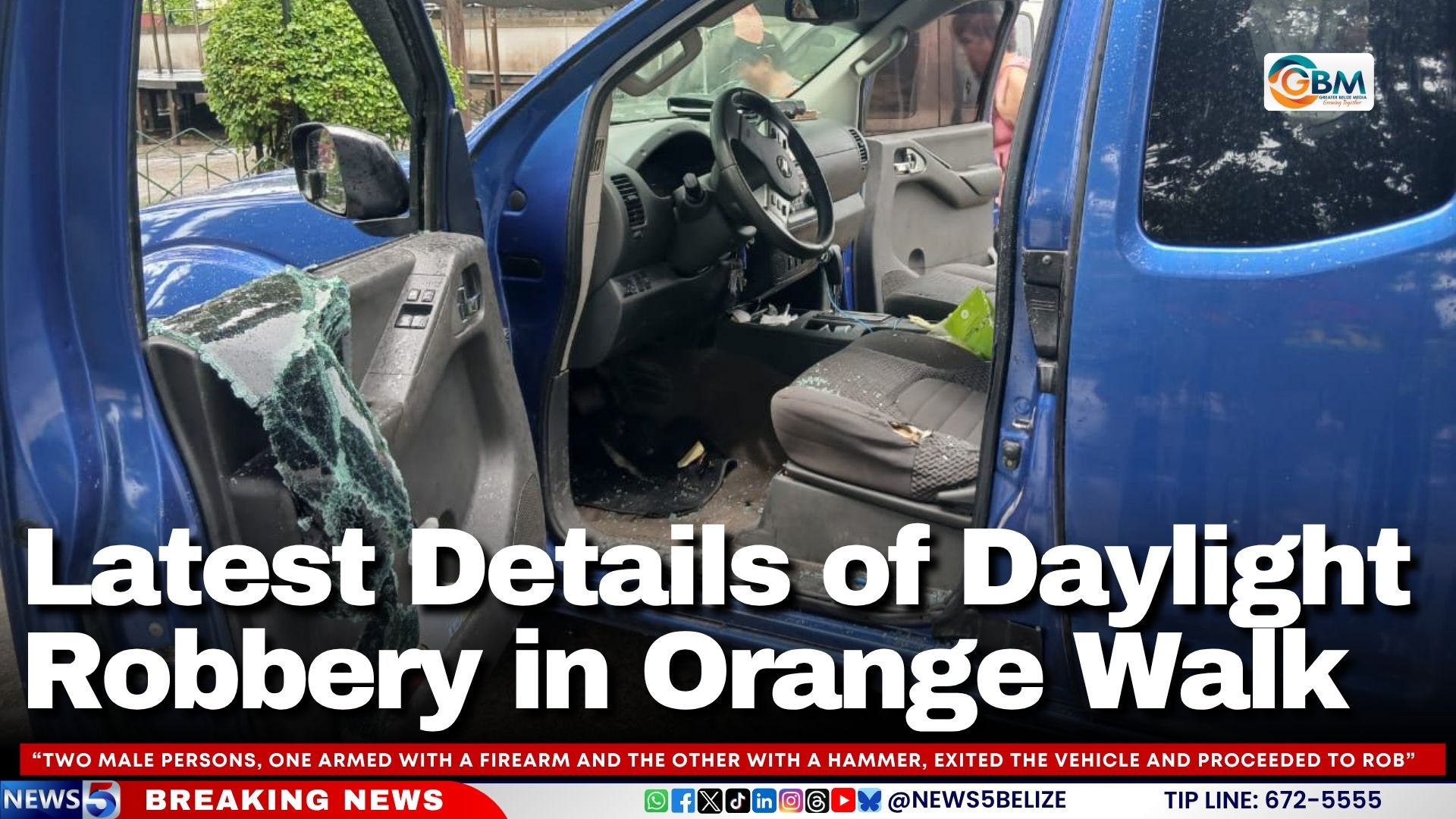Police are investigating a daylight robbery that occurred around 1:30 p.m. on Friday on Arthur Street in Orange Walk Town. According to Assistant Superintendent of Police Stacy Smith, employees of Triple A Imports were travelling in a vehicle when their path was blocked by an SUV.
“Two male persons, one armed with a firearm and the other with a hammer, exited the vehicle and proceeded to rob the employees of an undisclosed amount of money belonging to Triple A Imports,” said Smith. The suspects then returned to their vehicle and fled the scene.
Smith also confirmed that the suspects reversed and crashed into a gold Toyota Prado driven by the mayor of Orange Walk Town during their escape.
Police have detained one person in connection with the robbery.
When questioned about a possible link between the suspects and the company and a possible inside job, Smith stated, “There is no indication at this moment that can conclusively say so. However, how the incident unfolded, an inference can be made in that regard. However, it is not conclusive at this point.”
